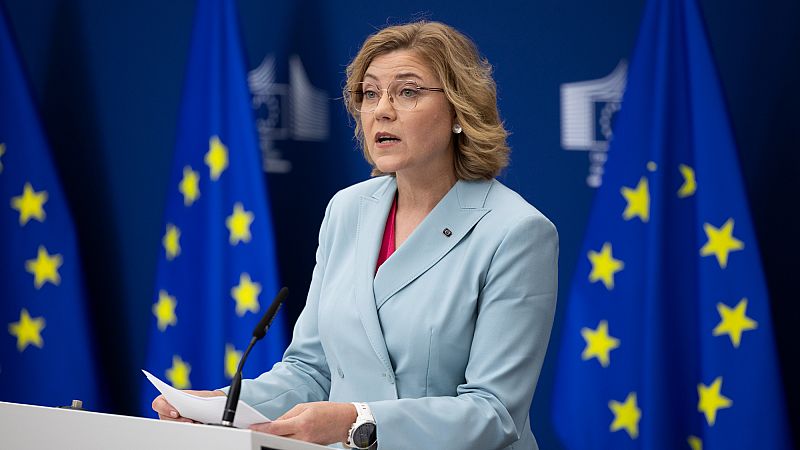
The European Commission on Wednesday adopted its first Quantum strategy, laying out a plan to turn the EU into a global leader in quantum technologies and avoid falling behind in a race dominated by the US and China.
"Quantum might sound like science fiction to some, but it is already a reality," said Executive Vice-President Henna Virkkunen at the launch of the initiative. "These technologies will change our economy, our security, and how we solve complex problems."
Quantum: a new generation of computers
Quantum technologies are set to transform every sector from healthcare and logistics to defence and cybersecurity. They are the next generation of computer but unlike classical computers, quantum machines process information in multiple states at once, enabling an immensity of calculus that were previously out of reach.
Some early applications are already being tested in the real world. In healthcare, quantum-enhanced radio scanner machines promise earlier and more accurate diagnoses for cancer or neurodegenerative diseases.
Gravimeter sensors based on quantum mechanics are being deployed to map underground water reserves and monitor seismic activity.
And in cybersecurity, the EU is preparing a continent-wide network for quantum communication, capable of protecting sensitive data from future quantum-enabled hacking.
Quantum technologies hold the potential for dual-use applications in civil and military domains. Quantum sensors can detect submarines or underground structures with high accuracy, for example, and quantum communication promises and unprecedented level of encryption for secure battlefield coordination.
Catching up with the competition
Despite being home to a third of the world’s quantum start-ups and leading in scientific publications, Europe currently lags behind in commercialising these breakthroughs, Virkkunnen said, despite the EU also having one of the largest quantum startup ecosystems.
"EU vendors supply nearly half of the hardware and software components used in quantum computers,” she said, claiming that despite this, fragmented national strategies, a shortage of private capital, and a lack of industrial early adopters are seen as key weaknesses.
Among the most ambitious national initiatives, France unveiled a €1.8 billion quantum strategy in 2021, aiming explicitly to become a “global leader in quantum computing” by 2025. Germany followed with its own large-scale plan in 2023, committing €2.8 billion to accelerate the development and industrialisation of quantum technologies. Other member states, including the Netherlands, Finland and Austria, have also launched national strategies - albeit with more modest budgets - focusing on areas such as quantum communication, sensing, and infrastructure.
The new strategy sets out to change that by streamlining this investment, strengthening coordination across member states, expanding public infrastructure like quantum chip pilot lines and computing facilities.
"It is crucial to act now. Our aim is to propose solutions for scaling up, to further coordinate our currently fragmented efforts with member states, and, most importantly, to lead.” said Virkkunen, referencing the need to scale up production and applications.
Wednesday’s announcement is a pathfinder to the nascent Quantum Act, legislation under preparation by the Commission and expected in 2026, to provide a legal framework to accelerate investment, support innovation, funding and coordination across Europe.







